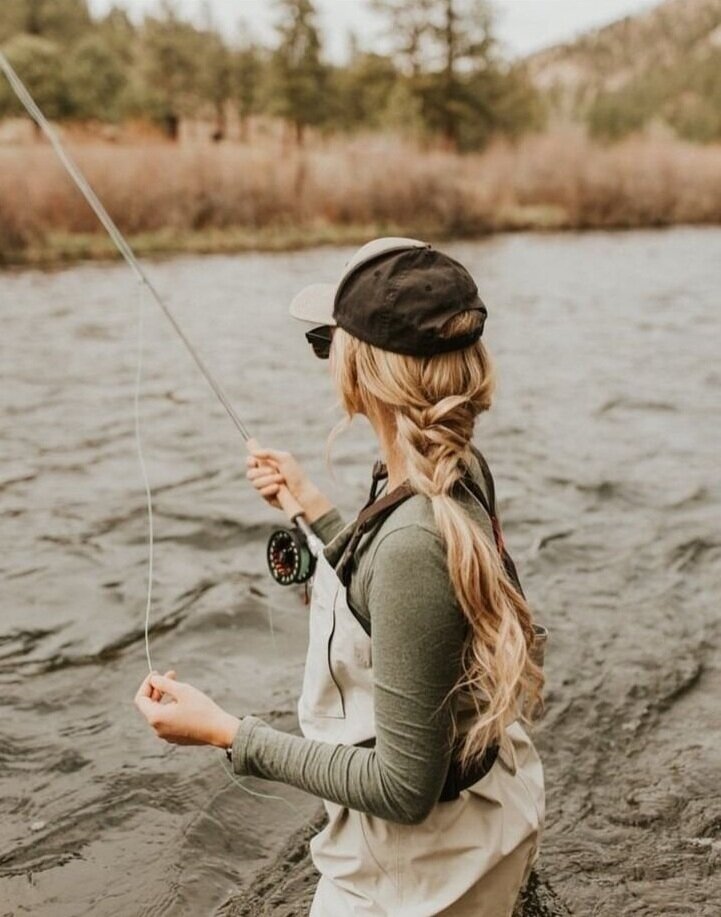The Art Of Mindful Fishing: A Journey Of Wellness And Connection With Nature
In our fast-paced world, finding peace and tranquility is often a challenge. One activity that stands out as a beacon of serenity is fishing, especially when approached mindfully. Mindful fishing is more than just a hobby; it's a journey of wellness and a profound connection with nature.
This practice, which melds the calming aspects of mindfulness with the serene environment of fishing, is gaining popularity among those seeking a respite from the hustle and bustle of daily life. What this outdoor activity truly cultivates is being present in the moment, appreciating the natural world, and finding inner peace.
In this article, we discuss everything you need to know about incorporating mindful fishing into your life and the many benefits you can expect to gain from it.
No. 1
Understanding Mindful Fishing
What exactly is mindful fishing? It's the practice of fishing with intention and awareness, focusing on the present experience rather than just the outcome of catching fish. Unlike traditional fishing, mindful fishing isn't solely about the thrill of the catch.
Mindful fishing is about immersing oneself in the process, being aware of the surrounding environment, and acknowledging one's thoughts and emotions during the activity. By integrating the principles of mindfulness—such as awareness, patience, and acceptance—into fishing, it transforms into a meditative and enriching experience.
No. 2
The Mental and Emotional Benefits of Fishing with Mindfulness
The benefits of mindful fishing extend far beyond the physical act of catching fish. Mentally, it's a powerful stress reliever. The rhythmic motion of casting a line, the focus required to watch the water, and the patience needed to wait for a bite, all contribute to a state of mental relaxation and clarity.
Emotionally, it can provide a sense of achievement and joy, even if the fish aren't biting. The tranquility of being near water, combined with the satisfaction of mastering a skill, nurtures emotional well-being and helps you disconnect from daily stressors.
No. 3
Preparing for a Mindful Fishing Experience
Preparation is the key to a successful mindful fishing trip. Choose a location that feels right—somewhere peaceful and not too crowded. Whether it's a quiet riverbank or a spot for deep sea fishing in Destin FL, the environment plays a crucial role in your mindfulness journey.
Pack light to minimize distractions; a simple rod, reel, and a small selection of tackle is all you need. Approach the trip with an open mind, free from expectations of a big catch. Remember, it's not about the number of fish you catch, but the quality of your presence during the experience.
No. 4
Techniques for Mindful Fishing
To fully engage in mindful fishing, practice being present. Start with deep breathing exercises as you set up your gear. Pay attention to your senses—the sound of the water, the feel of the breeze, the sight of the natural landscape. When casting your line, focus on the movement of your body and the rhythm of the rod and reel.
If your mind wanders, gently bring your focus back to your surroundings. Embrace patience, whether you're waiting for a bite or simply enjoying the stillness of the environment. Accept that not every trip will result in a catch, and that's perfectly okay.
No. 5
The Role of Nature in Mindful Fishing
Nature is an integral part of the mindful fishing experience. It's not just a backdrop; it's an active participant. The gentle lapping of the waves, the dance of light on the water, the occasional splash of a fish—these elements add depth to the experience.
Observing wildlife, from waterfowl to aquatic plants, enhances your connection with the ecosystem. It's a reminder that you're part of something larger, a vast, interconnected web of life that thrives in and around the water.
No. 6
Sharing the Mindful Fishing Experience
Mindful fishing can be a solitary pursuit, but sharing the experience can be equally rewarding. Organizing a group trip with friends or family who appreciate the mindfulness aspect can enhance the experience. It provides an opportunity to bond, share insights, and learn from each other.
Share stories, techniques, and moments of success and challenge. Such communal experiences can reinforce the sense of connection, not just with nature, but with fellow humans on a similar path of mindfulness.
No. 7
Mindful Catch and Release – A Sustainable Approach
Mindfulness in fishing also extends to how we interact with the environment. Practicing catch and release is a sustainable way to enjoy fishing without depleting fish populations. It's a respectful approach that acknowledges the value of each fish as a part of the aquatic ecosystem.
This practice requires careful handling and quick release of the fish, ensuring minimal harm. By choosing ethical fishing practices, you become a steward of nature, contributing to the health and longevity of our waterways and their inhabitants.
Takeaways
Mindful fishing is more than just a pastime; it's a pathway to wellness and a deeper connection with the natural world. Whether you're casting your line in a serene lake or practicing deep sea fishing in Destin, FL, the essence of mindful fishing remains the same—it's about being present, appreciating the moment, and nurturing a sense of peace and connection. It's a journey that rewards you not only with the potential of a catch but also with the certainty of personal growth and inner tranquility.
